IEA Announces Gas and Oil Will Peak This Decade Before Declining Forever
There’s no doubt that the world is changing, and it’s happening more quickly than ever before. With climate change on everyone’s mind, new and giant steps are being taken by lawmakers around the world to change the way we consume energy.
Because of these changes, the International Energy Agency (IEA), announced that global demand for oil, coal, and gas will peak within the next decade and then see a significant decline.
The Beginning of the End for Fossil Fuels
For decades, the world as a whole has been overusing fossil fuels. But since learning that the greenhouse gas emissions produced by these power sources are literally destroying the planet, scientists, environmentalists, and even the general public have been pushing the world’s government to put a stop to their use.

Source: David McNew/Getty Images
However, the urge to eliminate or at least decrease fossil fuel emissions has been an uphill battle, as many governments have refused to enforce immediate changes.
Legislation Changing Regulations Has Been a Slow Process
The fact that fossil fuels, such as oil, coal, and gas, are a blight on the planet is certainly not new information. However, even though many have been pushing world governments to change regulations to stop conglomerates or even government-run organizations from over-producing, the process has been painstakingly slow.
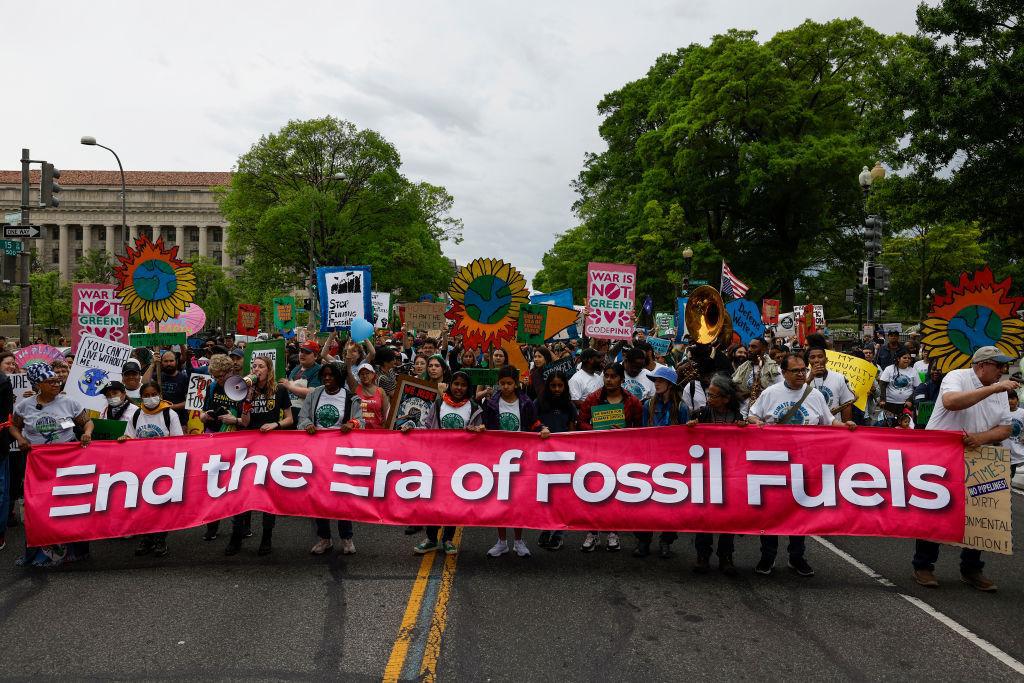
Source: Anna Moneymaker/Getty Images
Though it seems that several governments, such as the US and China, are finally taking action and making the changes that environmentalists have been pushing for for years.
The Biden Administration Has Made Significant Changes
The Biden administration has certainly made some important changes when it comes to fossil fuels and renewable energy. And while not all Americans are thrilled with his decisions, many believe that the big money the president is spending on green energy will absolutely make a difference.
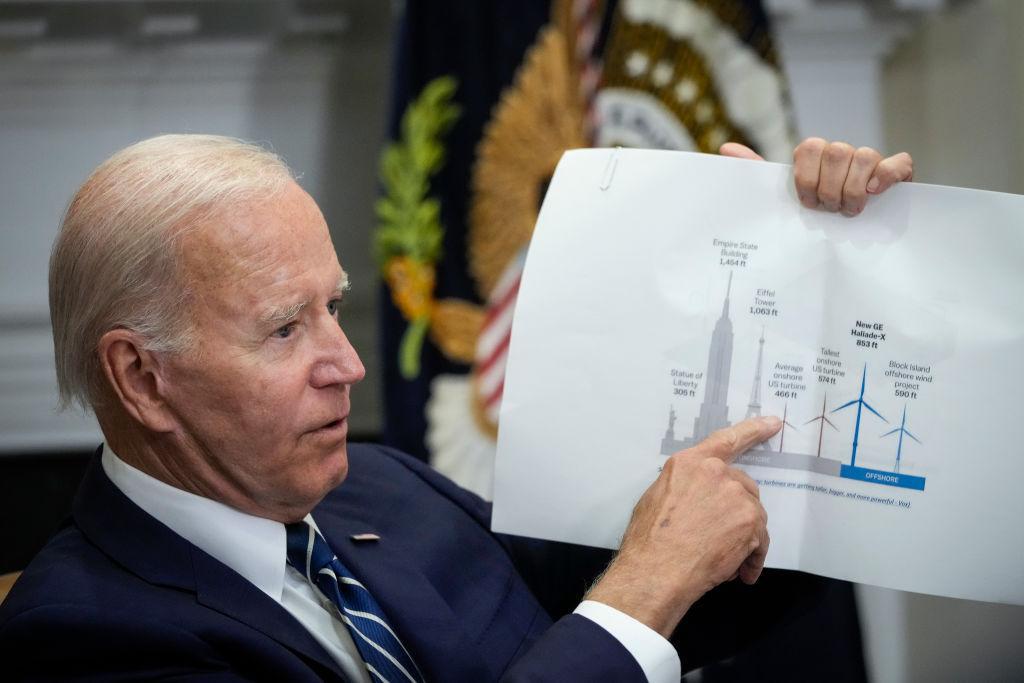
Source: Drew Angerer/Getty Images
Part of Biden’s long-term plan is to all but eliminate gas-powered cars by ensuring at least half of all American-made automobiles are fully electric by the year 2030.
US Wind and Solar Farms Are On the Rise
Another aspect of his plan is to significantly increase the country’s renewable energy resources by adding solar power and wind farms.
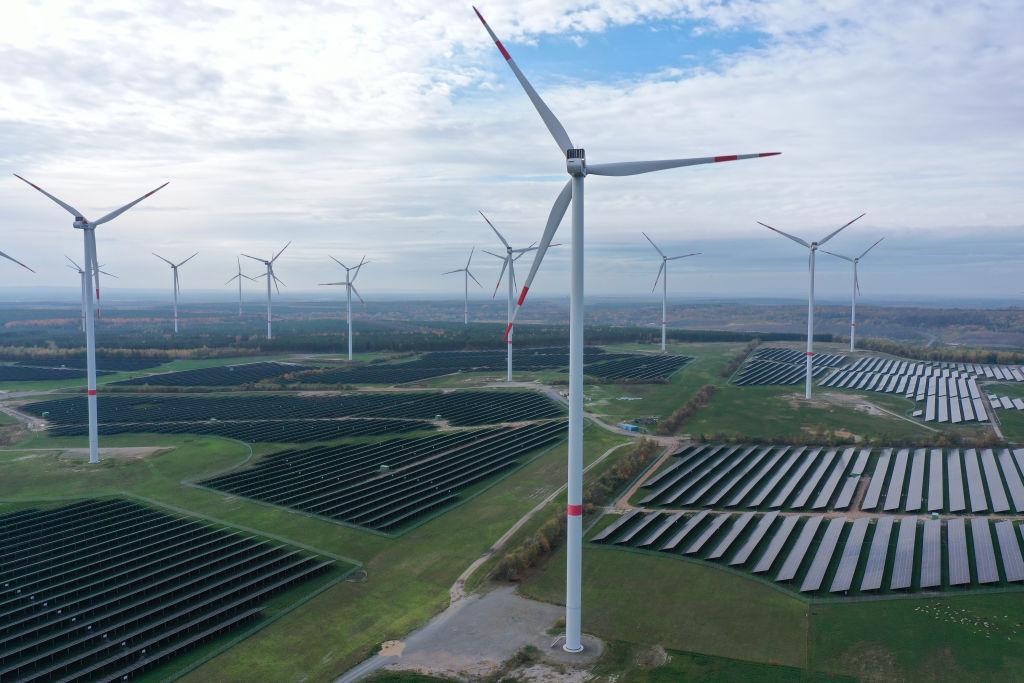
Source: Sean Gallup/Getty Images
In fact, Biden’s goal is to have 30 gigawatts of offshore wind online and ready for use by 2030, which would be enough to power over 10 million American homes with clean energy. Biden claims these wind farms will not only help in the imminent climate crisis but also provide jobs and new economic opportunities for American citizens.
China’s Recent Changes Will Absolutely Make a Difference
In addition to the United States, China is also receiving recognition for its significant changes to its use of fossil fuels. Policymakers in China are focusing on renewable energy more than ever before, and as the largest consumer of coal on the planet, this decision could make a real difference for the planet.

Source: China Photos/Getty Images
Experts also note that China’s slowing economy will play a part in the decline of fossil fuels, though if the country gets back on its feet in the near future, this aspect could become less influential.
Russia’s Invasion of Ukraine Directly Affected Europe’s Gas Use
For years, Russia has been one of the biggest producers of crude gas on the planet. However, after the country’s invasion of Ukraine last year, Russian gas is now essentially useless.
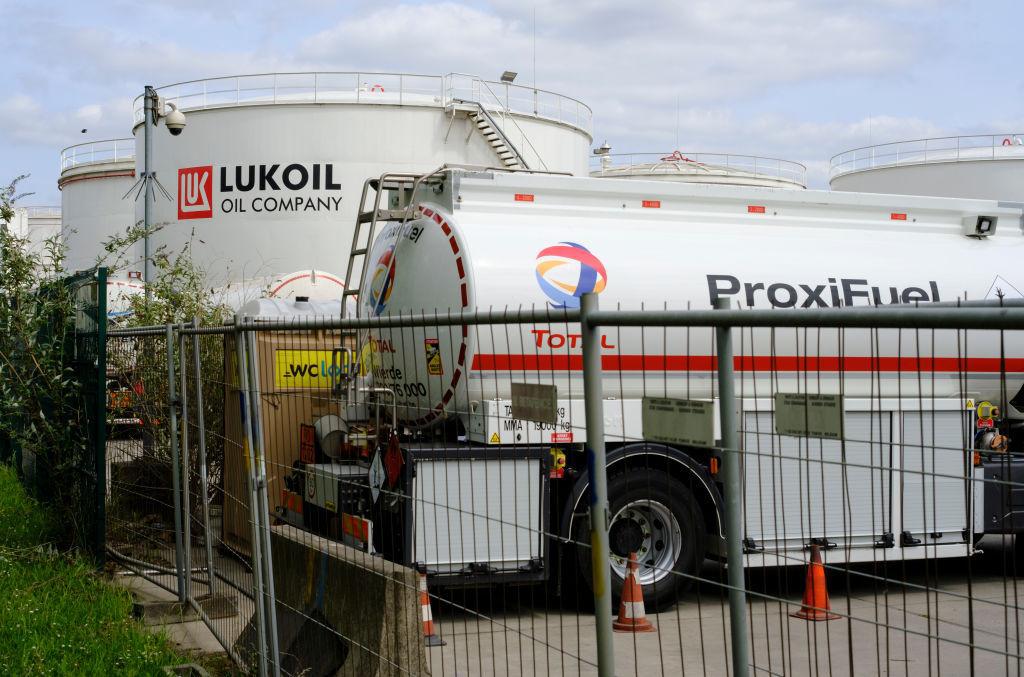
Source: Thierry Monasse/Getty Images
Countries around the world, including the US and those that make up the European Union, are refusing to purchase Russian products, including oil, in protest of the country’s war in Ukraine. And without anyone to sell its oil to, Russia’s production will undoubtedly see a serious decline in the coming years.
Consumer Choice Will Also Play a Role
When it comes to seeing tangible changes, it’s often difficult to believe that consumer choices will make any real difference. However, if the general public does decide to change the way they consume energy, it will affect the supply and demand of products such as oil, coal, and gas.
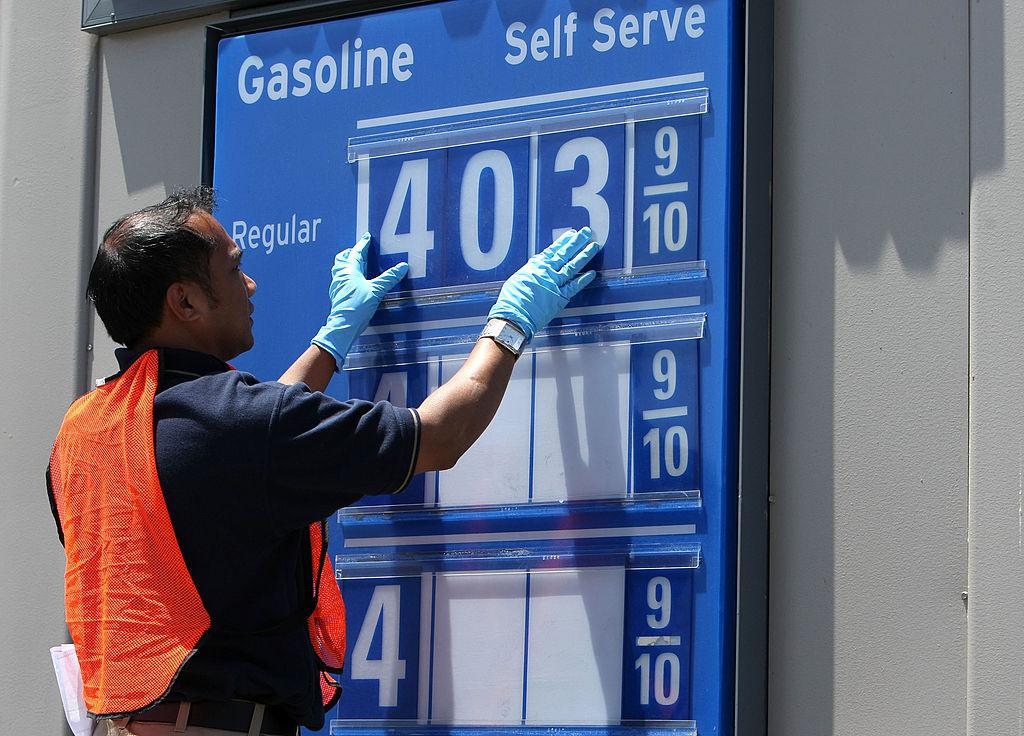
Source: Justin Sullivan/Getty Images
For example, if people start buying electric cars instead of models powered by gasoline, opt for heat pumps that use electricity, and even reduce their plastic use, the billions of inhabitants on our planet can make real change happen.
Fossil Fuel’s ‘Seemingly Relentless Growth’ Is Over
Because of the changes made by people around the world and, of course, improved government regulations, the IEA reports that the “age of seemingly relentless growth” of fossil fuels is over.

Source: Joe Raedle/Newsmakers/Getty Images
Fatih Briol, executive director of the IEA, told the press that, “Based only on today’s policy settings by governments worldwide – even without any new climate policies – demand for each of the three fossil fuels is set to hit a peak in the coming years. This is the first time that a peak in demand is visible for each fuel this decade—earlier than many people anticipated.”
IEA Claims These Changes Aren’t Enough to Limit Global Warming
Although the IEA’s announcement that the once-never-ending growth of fossil fuels production seems to be over, the organization also stated that it’s just too little too late.
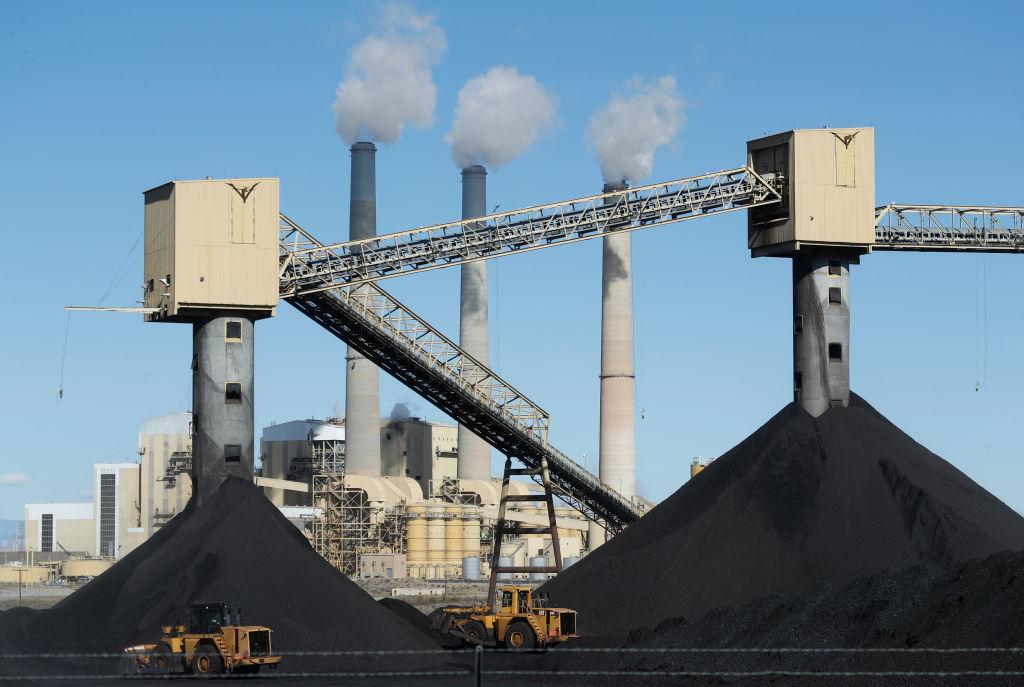
Source: George Frey/Getty Images
Recently, the IEA released a different proclamation that stated if we aren’t able to reduce the planet’s ever-increasing temperature 1.5 degrees Celsius within the next two years, the planet will never recover from the damage humans have caused. And although the diminishing demand for fossil fuels is a positive result, it’s not enough to reverse climate change altogether.
Lawmakers Need to Continue Adjusting Regulations to Increase Renewable Energy
But even though there’s no going back, the IEA and other environmentalist groups are still pushing for more changes to be made as quickly as possible to attempt to lessen the repercussions of climate change.
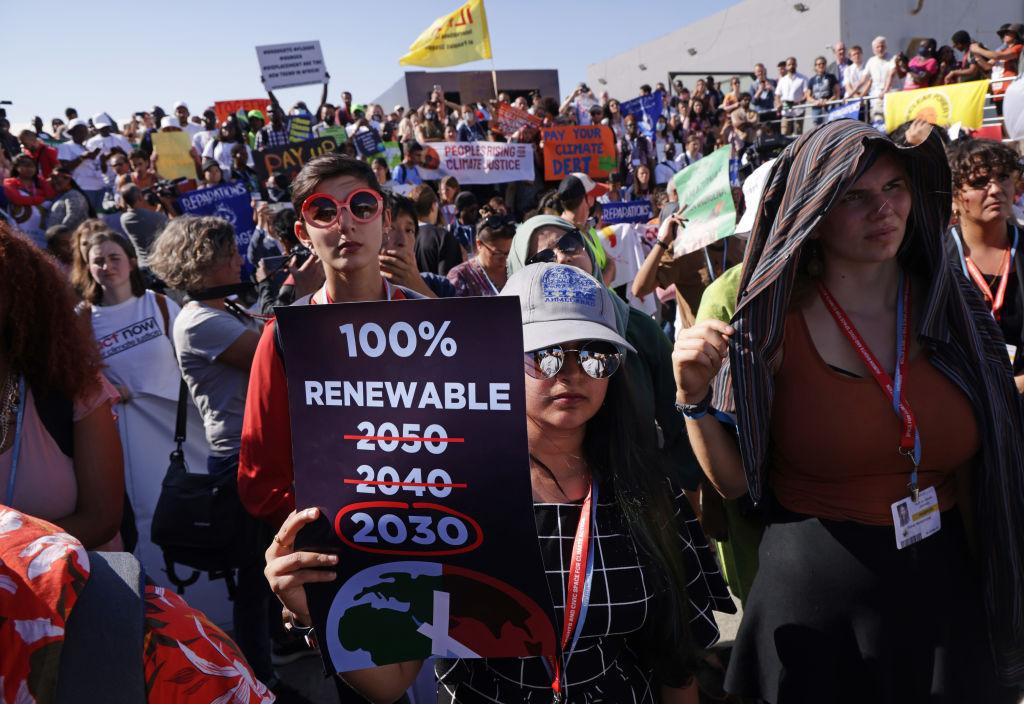
Source: Sean Gallup/Getty Images
Essentially, what’s been done so far by governments, corporations, and people around the world is just the beginning. Many more changes need to be made in order to ensure the demand for fossil fuels continues to fall and the planet slowly recovers.
The Decrease in Fossil Fuel Demand Will Be Slow
It’s important to understand that even though the IEA claims the world will see peak demand for fossil fuels such as coal, oil, and gas this decade, followed by a predicted decline, the decrease in demand won’t be unwavering.

Source: Andreas Rentz/Getty Images
In the coming years, the world can expect to see less need for these harmful energy sources, but it’s likely that demand will continue, and there will be smaller peaks and plateaus. That is, until world governments can make real and lasting changes that eventually lead to significant and enduring decline.
